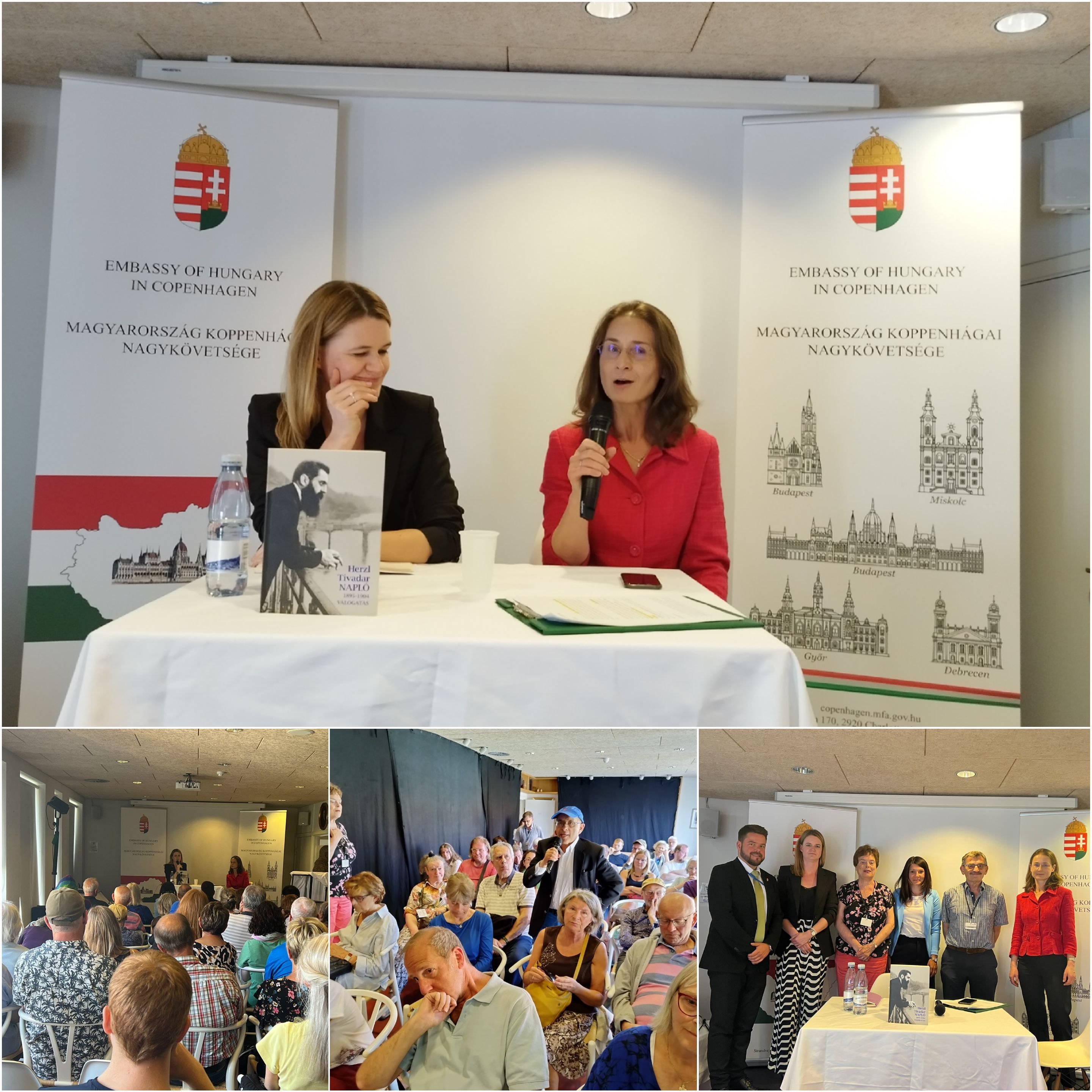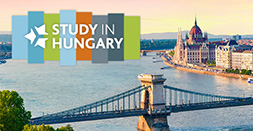Theodor Herzl's Diary in Copenhagen
On 8 June 2023, a panel discussion organised by the Hungarian Embassy in Copenhagen took place in the framework of the Jewish Cultural Festival, with great interest.
Dorottya Baczoni, historian and director of the Institute of the Twentieth Century in Budapest and Katalin Deme, professor and expert at the University of Aarhus, presented Theodor Herzl's diary, written in German at the turn of the 19th and 20th centuries, but published in Hungarian just in 2022. We learned a lot of interesting and thoughtprovoking information about the life of the father of Zionism and the circumstances of the writing of the diary and the present volume, which is recommended to our followers as it is a really readable book.
The full diary is around 2000 pages long and is available to the public as an e-book, the printed and presented version is a 700-page extract. The diary presents in full detail the private life, professional work, daily trials and challenges of Tivadar Herzl (or as he is known to international Jewry, Theodor Herzl) and his responses to them. In the diary, he outlines his long-term vision of a newly independent Jewish state that would define the very existence of Judaism. As such, Herzl can rightly be considered the father of Zionism.

Theodor Herzl was born in 1860 into an assimilated, secular, Jewish family in Budapest. He spent the first 18 years of his life in Budapest, then moved with his family to Austria, from there to Paris, and then back to Austria. He visited Budapest every year and his wife had Hungarian connections. Herzl's name is inextricably intertwined with the most prosperous period of Hungarian nation-building. He recognised that liberalism was incapable of overcoming all social tensions, and that new foundations had to be laid: the roots of his political Zionism were not to be found in traditional Jewish culture, but in secularised Jewish thought. In Paris, Herzl also came into 'freer' contact with anti-Semitism. One of his acquaintances there, the French writer Alphonse Daudet, suggested that he write down his thoughts on the Jewish question in the form of a novel. Asked why it had taken more than a hundred years for the diary to be published in Hungarian, the experts in the discussion explained the answer by the horrors of the two world wars and the period of communism in Hungary afterwards, and the sensitivity of the subject since the regime change of '89-90. Although Herzl cannot be classified as either the classical right or the classical left, it is difficult to attribute an identity model to him: his ideas include conservative ideas and solutions based on traditional values, as well as progressive, liberal or progressive views.
We would like to take this opportunity to thank the organizers again for their efforts and all the kind guests present for their participation and interest in our event.

